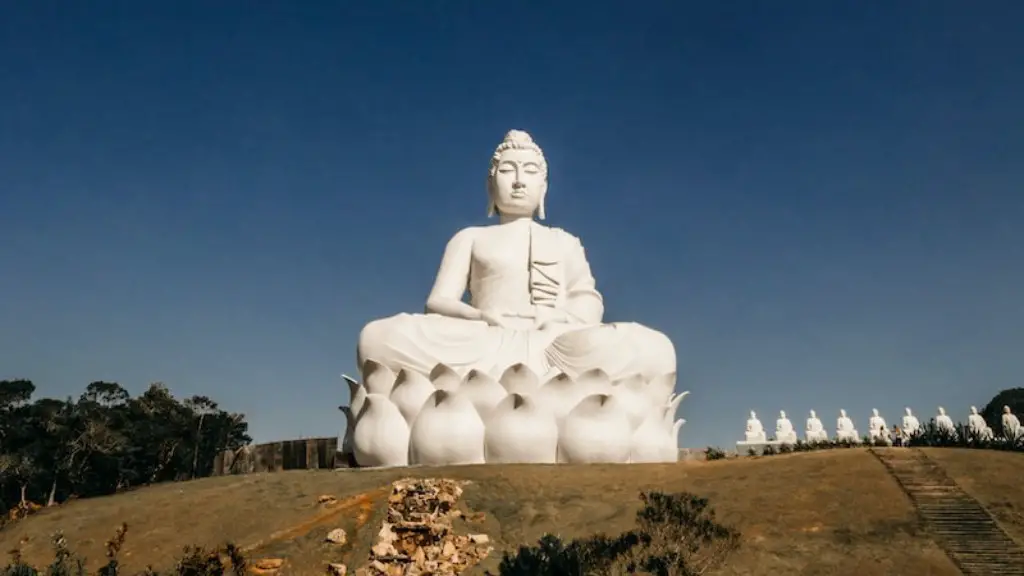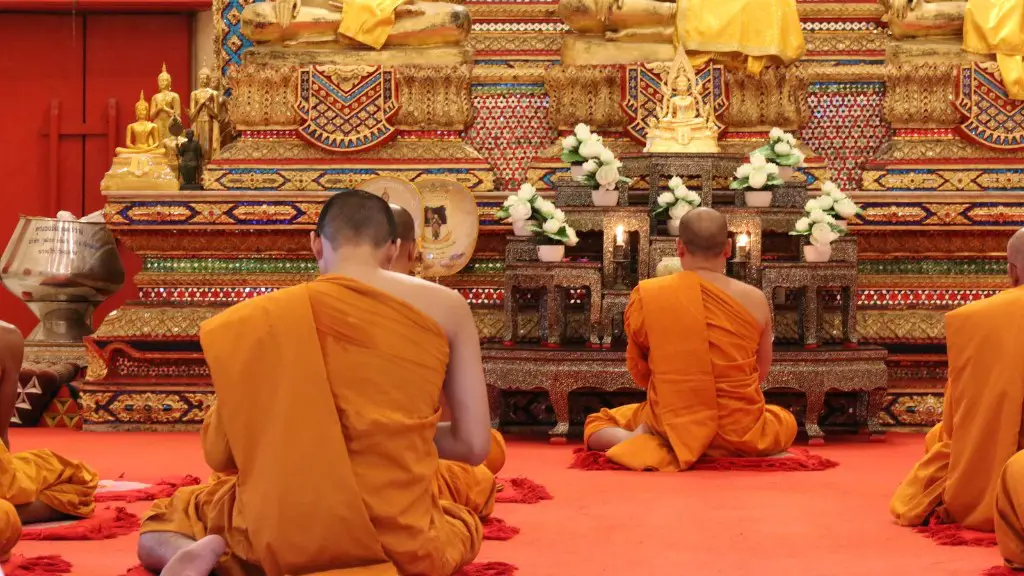Buddhism teaches that death is not the end, but merely the beginning of a new journey. What happens after you die in Buddhism depends on how you have lived your life. If you have lived a good life, you will be reborn in a higher realm. If you have lived a bad life, you will be reborn in a lower realm.
In Buddhism, after you die you are reborn into another life. This cycle of life, death, and rebirth is called samsara.
How long after death is rebirth in Buddhism?
There is a great deal of variation in Buddhist beliefs about the afterlife, with some schools believing in reincarnation and others not. Tibetan Buddhists believe in an in-between stage known as the bardo which can take up to 49 days, while Theravada Buddhists from Sri Lanka, Myanmar, Thailand, Laos and Cambodia believe that rebirth can be immediate. Those who attain enlightenment (nirvana/nibbana) do not get reborn upon their death.
The belief in rebirth is central to Buddhism, as it is seen as a key part of the cycle of suffering that keeps beings trapped in samsara. Buddhists believe that through the practice of Dharma, it is possible to break free from this cycle and attain nirvana.
What are the stages of death in Buddhism
The Tibetan Book of the Dead is a religious text that describes the stages of death and rebirth. The text includes instructions for meditation exercises that are designed to help the reader achieve a better understanding of the process of dissolution during death.
In Buddhism, there is no concept of punishment or reward. There is no divine being who decides who goes to hell or heaven. There is merely the illusory results of our thought, words and deeds, which we call karma.
How many times can you reincarnate Buddhism?
The Sotāpanna, or Stream-enterer, is a person who has attained the first level of enlightenment. This person has eliminated the first three of the ten fetters that bind a person to the cycle of rebirth. They are still bound by the remaining seven fetters, however, and so will still experience up to seven more rebirths.
The Sakadāgāmi, or Once Returner, is a person who has attained the second level of enlightenment. This person has eliminated the first five of the ten fetters that bind a person to the cycle of rebirth. They are still bound by the remaining five fetters, however, and so will only return for one more human rebirth.
The Anāgāmi, or Non-returner, is a person who has attained the third level of enlightenment. This person has eliminated the first seven of the ten fetters that bind a person to the cycle of rebirth. They are still bound by the remaining three fetters, however, and so will only return once more to a heavenly realm.
It is not uncommon for people who are dying to experience visual or auditory hallucinations. The appearance of family members or loved ones who have died is common, and these visions are considered normal. The dying may turn their focus to “another world” and talk to people or see things that others do not see.
Is it painful when the soul leaves the body?
It is difficult to lose someone close to us, especially when their death is sudden and unexpected. The pain of separation can be overwhelming, but it is important to remember that the soul lives on even after the body has passed away. The person we love is still with us in spirit, and they will always be a part of our lives.
Buddhists believe that the body is a vessel that can receive gifts and messages after death. They gather around the body to pray and bestow presents. Buddhist mourning periods last up to 100 days, with services traditionally held on the third, seventh, 49th, and 100th day.
Are Buddhists scared of death
Buddhism teaches that life is impermanent and that death is a natural part of life. The Buddhist view of death is that it is a natural process that should be accepted. Buddhism also teaches that the individual should detach from personal conceptions and expectations of death, and that the mind should be trained to accept death.
Pāpa, apuñña or sin refers to the evil elements that defile the mind and have a deadening effect on the psyche, making it difficult for it to be uplifted. Buddhism does not believe in any personal God or any Supreme Being, so these evil elements are seen as something that we need to overcome.
Who is Jesus in Buddhism?
There are some high level Buddhists who have drawn analogies between Jesus and Buddhism. However, it is important to remember that there are also many differences between the two religions. For example, Buddhism does not believe in a personal god, while Christianity does. Therefore, while there may be some similarities between Jesus and Buddhism, it is important to remember that they are ultimately two very different religions.
There is no single answer to the question of how to forgive. Everyone will have to find their own way to forgiveness, based on their own beliefs and values. However, the traditional Buddhist practice of forgiveness through repeating phrases of forgiveness toward oneself, toward those who have harmed us, and toward those whom we have harmed, can be a helpful way to start. Forgiving ourselves can often be the most difficult part, but it is also essential to the process. By forgiving those who have harmed us, we can begin to let go of the anger and hurt that they have caused. And by forgiving those whom we have harmed, we can begin to heal the relationships that have been damaged.
What is 49 days Buddhist
The Buddhist mourning period is a time of reflection and prayers for the deceased. Many believe that this is a particularly important time, as it is believed that rebirth takes place during this time. Traditions vary on the length of the mourning period, but many observe it for 49 days. During this time, prayers are said for the deceased every seven days to help them pass into the next life.
There is a lot of debate surrounding the idea of reincarnation, and whether or not it is possible. Some people believe that it is possible, while others believe that it is not possible. Rakesh is a Buddhist scholar who believes that there can be no reincarnation of Buddha, even though Buddhists believe in life after death. This is an interesting perspective, and it will be interesting to see how this debate develops in the future.
Do Buddhist believe in karma?
Buddhists believe that karma has implications not just for this life but also for future lives. Bad actions in a previous life can follow a person into their next life and cause bad effects (which Westerners might interpret as “bad luck”). Even an enlightened person is not exempt from the effects of past karma.
Even though a dying patient may not be able to respond to the sounds they are hearing, brain activity supports that they are likely still able to hear. This means that verbal interactions and phone calls from loved ones can still be of value to the patient even if they cannot communicate their awareness of the sound.
Do people who are dying know they are
It is difficult to watch a loved one die, but it is important to remember that they are most likely aware of what is happening and that death is inevitable. Let them know that you are there for them and support their decision to let go.
It is not uncommon for people to lose consciousness near the end of life. However, they may still have some awareness of other people in the room. They may be able to hear what’s being said or feel someone holding their hand.
Warp Up
There is no one answer to this question as there is no one way to practice Buddhism. Some people believe that you are reincarnated into another life, while others believe that you enter a state of Nirvana.
In Buddhism, the belief is that after you die, your soul is reincarnated into another body. This process happens over and over again until you reach Nirvana, which is a state of complete peace and liberation.




